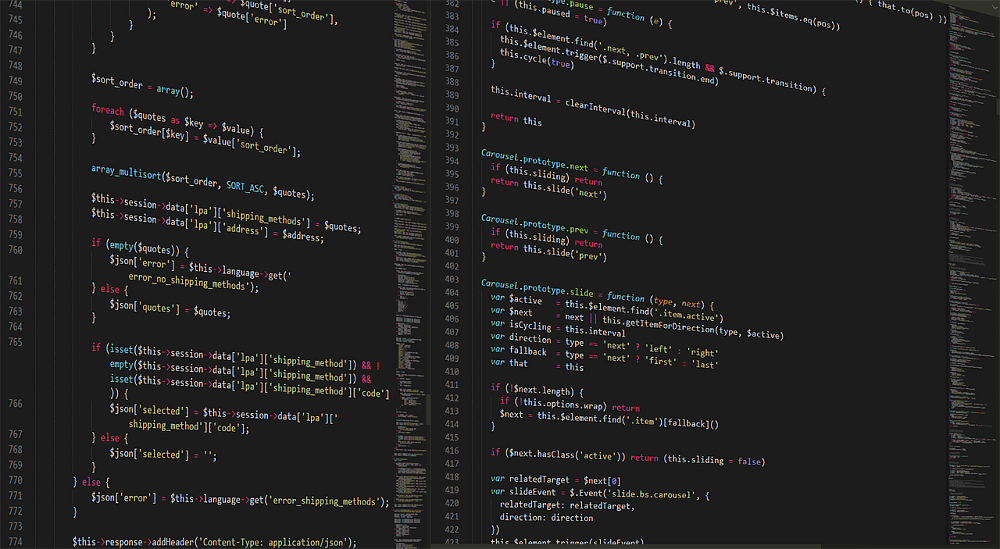The world of programming keeps developing and changing continuously. It doesn’t end with getting your degree or certificate. You have to walk, even run, to stay ahead from others.
Practice makes a man perfect, but when you stop practising, perfection slips away. You have to keep a hold at it. If you are into programming and intend to make a career of it, one assumes you have learnt the basic computer languages and are reasonably good with algorithms, multi-threading, prototyping and unit testing, apart from things like data structure etc. You need a variety of skills and they need to be kept razor-sharp. It’s like being battle-ready always: you can’t let your weapons rust.
What are the elements or aspects you think will make you a better programmer? Which skills would you need? Do you just want to be faster?
While many may think that churning out codes fast is enough to qualify as better programmers, there is more to it. The coding aims to prepare software that addresses the requirements it has to meet or satisfies the purpose it is supposed to serve, so to say.
- First, understand the requirements fully.
- Second, meet those requirements.
- Finally, make the whole thing easy to understand and use.
All of this will need you to share your ideas with the stakeholders at every step: your understanding of their requirements, helping them fine-tune it and filling in any gaps, suggesting your solution, show them what you have designed and then give the final product.
So, let’s get started with tips to improve your programming skills:
Tip #1: You need not start with writing codes from the beginning and for every subsequent step from scratch. Many of these components of the overall package may have been worked out already and accessing and using them can help cut down on your time and effort.
Tip #2: This also means you will have to be up to date with your research and keep adding such components for software development to your “toolbox” or “library”.
Tip #3: There are design patterns to address many, if not most, of the common issues and you need not waste time trying to reinvent the wheel. These office design patterns provide you templates to write your code. They fall into three broad categories:
-Creational
-Structural
-Behavioural
How do you master them? As we noted right at the start, you have to keep at it; there is nothing to beat practice.
Tip #4: It is always a good idea to share ideas. Share and discuss with others, and you are likely to come up with something new. It works in every field and there is every reason for it working here.
Also, ask for help if you need it, and be ready to help out when others need you. Helping out others gives you practice and, more often than not, add to your skills.
Tip #5: Another thing you ought to try is having a warm-up session before you get to the actual task of coding – much like warming up session before the actual work-out. Go through a tutorial, play a coding game, or solve a puzzle. Such activities open up your mind and bump up your creativity, aside from enhancing your knowledge and bringing fresh ideas.
Tip #6: A useful suggestion, especially for beginners, is to participate and contribute to open source projects to sharpen your skills, interact with other programmers with a variety of skills, gain knowledge, and build a network.
If done so, then what?
- You get an opportunity to show off your skills and expertise.
- If you are a beginner, you can offer to work on functions that do not involve coding: documentation, drafting copy, fine-tuning the appearance/aesthetics.
- Such Open source code projects, from business leaders such as Apache and Google help, improve your programming skills, and for knowing else, there’s assignment help.
- You get to listen to the discussions between the best and learn about the hurdles and the solutions to them, or how to go about finding those solutions.
- You also learn or get an insight into their habits and practices.
- Be an active participant and ask questions and interact with them. As you learn the ropes, you can take the next step and demonstrate your coding skills as well, in a public setting.
- The idea is to keep practising coding, see where you make mistakes or face hurdles, and learn to tackle them.
- Also, once you have handled the problems and found a solution, go and improve upon it. It was only the “first draft”, or “prototype”.
And then follow these next steps:
- Writing Unit Tests is the next step after coding and helps you improve upon your design. You need to test it thoroughly.
- If it is difficult to test, it needs to be improved, whether in labels, design, or interface. Make sure you write a Unit Test for your code.
- Code review takes this step further and helps you become a better programmer. Unit tests and code review help improve programming skills immensely.
Finally, much as you might hate it as a millennial, reading helps. It helps you know what a good code is and what a bad code is. Reading is good; reading lots of books indiscriminately is a waste. Choose wisely. A useful book, recommended by many knowledgeable professionals are Clean Code by Uncle Bob and Effective Java by Joshua Bloch. Reading blogs that are shorter and more focused will also help.
Conclusion:
The thumb rule in Programming: start with the simple tasks and work towards the complex ones, and make them simple for the end-user.
Author Bio: Koby Mahon is the content writer of this piece. Koby is a Program Blogger, providing Programming assignment help to scholars attached to the service provider Online Assignment Expert.
